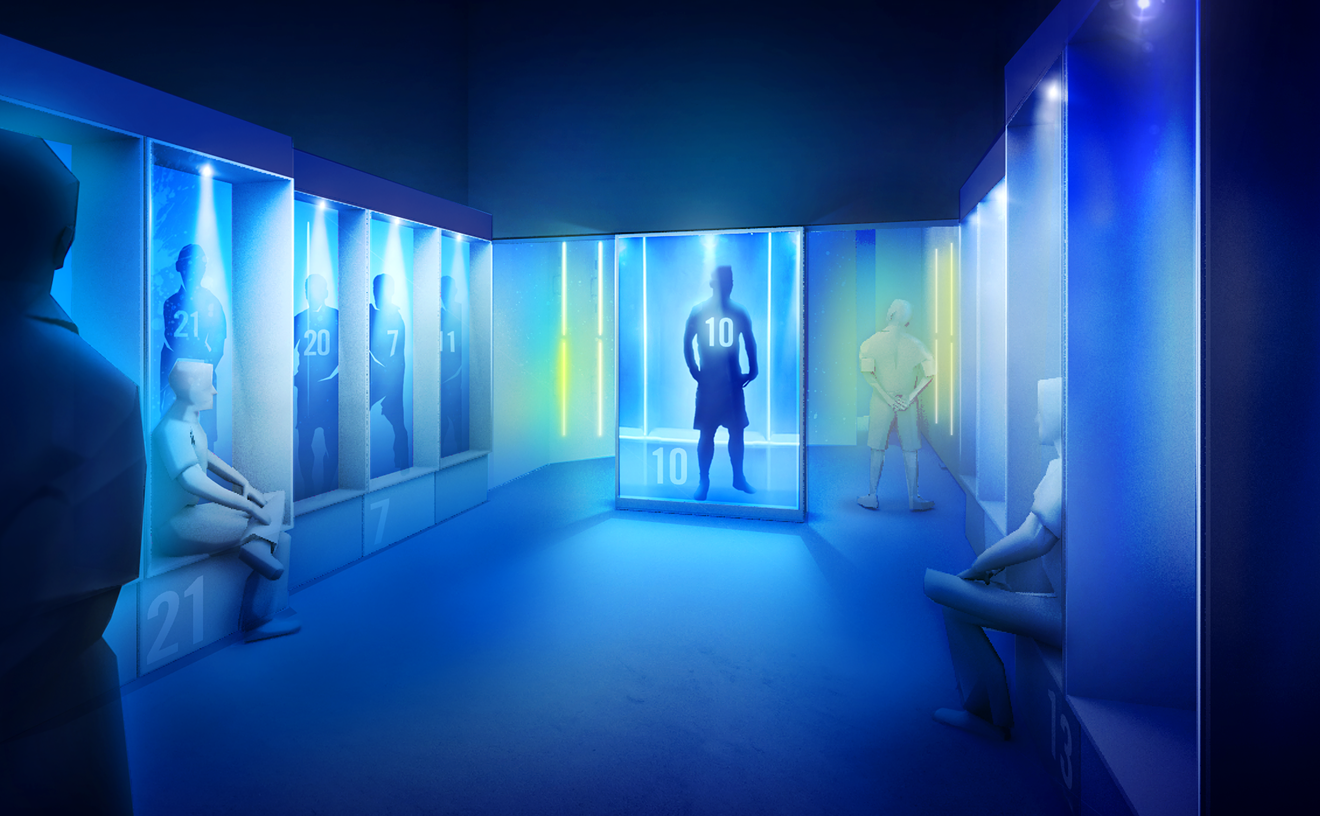Playwright Moisés Kaufman and his New York City-based theater company, Tectonic Theater Project, traveled six times to Laramie over a year and a half and conducted more than 200 interviews. The work culminated in The Laramie Project, now being staged by Caldwell Theatre Company. What Tectonic created has been called documentary theater, but it feels more like a sort of living archaeology, excavating and recording countless testimonies, commentaries, and viewpoints that depict the town before, during, and after the horrific murder. On the sparsely decorated stage, 8 actors portray some 60 characters, most citizens of Laramie. These individual pieces are elegantly interlocked into a profound human mosaic.
Kaufman's theater company is dedicated to exploring theatrical language and forms, and The Laramie Project exemplifies that mission. Kaufman could have merely researched the topic and written a play about it, but his choice to make a docudrama is perfect for the subject matter. In this approach the stage becomes not only a locale for the action, it becomes the camera, too -- shifting perspectives to capture the behaviors, thoughts, and reflections of the real people who were affected by the tragedy. The commitment to accuracy that drives the documentary form creates a striking balance with the drama of the performance, thereby preventing The Laramie Project from tipping into the abyss of political agendas or melodramas. Consequently it allows the play to capitalize on its real asset: the people of Laramie, who represent a fascinating socioeconomic cross-section of small-town America and display a staggering array of attitudes. We meet a local reporter, a Muslim student, a rancher, the limo driver who sometimes drove Matthew to gay bars in Colorado, Matthew's best friend, the bartender who served Matthew the night he met his killers, the bicyclist who found Matthew, and the vehement preacher with "I hate faggots" written on his jacket, among many, many others.
The members of Tectonic who traveled to Laramie, including Kaufman himself, also are characters in the play, adding an intriguing dimension. At first Kaufman and his crew represent all of us as curious outsiders. Later, as more voices emerge, the audience realizes that characters such as these exist not only in this particular small town but everywhere. Kaufman's superbly written and edited script and the Caldwell's excellent actors transform a story about a town into a story about the complexity of being human.
The play also addresses the behavior of the media, which descended upon the town like vultures to snatch up clichés and feed them to an American public for whom morbid fascination has become the new national pastime. As college student Jedadiah Schultz (Mark Rizzo) points out early in the play: "Laramie is a town defined by a crime." The media largely were responsible for sculpting that definition. As the play progresses, one discovers that the incessant media circus hurt Laramie almost as much as the crime itself did. As one of the Tectonic members describes, the signs that one sees upon entering town, which would normally vaunt motels with amenities like air conditioning and cable TV read, "Hate is not a Laramie value."
One of the most surprising facets of the play is its use of humor. The characters erect a scaffold of levity around an impenetrable tragedy. Jacqueline Knapp plays Zubaida Ula, a Muslim feminist memorable for her awkward mannerisms and strikingly frank discourse: "President Dubois or whatever got up there and said to us -- he said, um, “blah-blah-blah-blah-blah-blah,' and then he said, I'm saying it wrong, but basically he said, “C'mon guys, let's show the world that Laramie is not this kind of a town.' But it is that kind of a town. If it wasn't this kind of a town, why did this happen here?"
Jedadiah Schultz, a drama student who defies his parents by performing in the gay-themed play Angels in America, is another character who employs humor as a form of rebellion. In a hilarious monologue riddled with "likes" and "you knows," Schultz tells how his mother objected to his playing a homosexual character. Reminding her of his recent performance in Macbeth, he shoots back: "Mom, I just played a murderer tonight. And you didn't seem to have a problem with that."
The actors' sense of space and movement is very sophisticated. With so many people often on the stage at once, there is never a moment of chaos. All the actors wear brown and work with very few props (a chair, a bench, scarves, hats, sunglasses). The props serve almost as visual punctuation as actors take off sunglasses or put on hats, changing gender, age, and attitude with ease. The actors' variations of gesture, tone of voice, and movement fill the stage with the spontaneous energy of an impromptu performance. Authentic gestures, facial expressions, intonations, pauses, tears, and laughter shatter the media caricatures of the homophobic cow town. The uniform brown costumes symbolize the characters' universality; the versatility and verve of the actors celebrate each character's uniqueness. Jason Field as the bartender who last saw the victim leave with his killers, Laurie Gamache as the sheriff who cut Matthew from the fence, and Pat Nesbit as her sassy mother all give standout performances.
As much an exploration as it is a dramatization, The Laramie Project searches a town for attitudes that might lead us to understand why such heinous crimes occur -- without finding an answer. Even one of the murderers' offhand confession provides no satisfying conclusion. That said, the two-and-a-half-hour play does avoid the trap of portraying the story in terms of a facile good-versus-evil dichotomy. What is most commendable about The Laramie Project is the utter humanity of the town and its citizens, which becomes all the more frustrating in light of the cruel facts of Matthew Shepard's murder. The brutality that the play temporarily transcends also holds us permanently captive.










